Seven Ways from Sundown
Brief Synopsis
Cast & Crew
Harry Keller
Audie Murphy
Barry Sullivan
Venetia Stevenson
John Mcintire
Kenneth Tobey
Film Details
Technical Specs

Synopsis
In Beekers Crossing, Texas, outlaw Jim Flood, known as much for his legendary charm as for his crimes, shoots his way out of a saloon and escapes into the hills. Soon after, newly appointed Texas Ranger Seven Ways from Sundown Jones reaches the nearby town of Buckley, where tough Lt. Herly partners him with Sgt. Hennessey, a kind lawman who is willing to teach the novice how to use his new revolver. Hennessey directs Seven to Mrs. Karrington and her daughter Joy, who serve food for the Rangers. Joy and Seven share an immediate attraction, and she invites him to a party that evening. Herly, however, orders Seven to watch the office while the rest of the men attend the party, and announces that Seven and Hennessey will set out the next morning on Flood's trail. Joy visits later that night to voice her concern that Flood is too tricky for the two of them to catch alone. Hennessey's similar concerns are compounded by his secret knowledge that Flood killed Seven's Ranger brother, Two, but he gains confidence after seeing Seven expertly shoot down a hawk that is about to attack Joy's dog. In the morning, the two men set out, with Hennessey teaching Seven sharpshooting tricks along the way. They stop at a neighboring town to inquire after Flood, and by pretending to be fellow outlaws, learn from dancing girl Lucinda that he rode off to the north. She sends her undying love, after which Hennessey leads Seven to the west, knowing that Flood always lies to women. After many days, they manage to come within hours of Flood's trail, and at one point meet a young boy, Jody, whom Flood has captivated with his wild tales and generosity. When Seven comments that Hennessey seems to admire the outlaw, the older man admits that he knew Flood when they were young, and does not consider it his place to judge him. On the trail soon after, Flood spots the Rangers below him and shoots, wounding Hennessey. Before dying, the sergeant urges Seven not to pursue Flood alone, although he knows his words will go unheeded. Seven buries Hennessey, then takes off after Flood, wounding him in the arm when he spies him ahead. Flood genially asks to be taken to a nearby cabin, then faints, prompting Seven to take him to the cabin to nurse his wound. After Flood revives, Seven begrudgingly admires his courage and intelligence, as well as his remorse when he learns that he killed Hennessey. Flood reveals that Hennessey saved his life once, years earlier. Seven is very cautious with his wily prisoner, who nonetheless proves that he could kill the young man at any moment by throwing a fireplace poker near his head. Later, they play poker for pennies, with Seven soon losing two months' wages to the scoundrel. In the morning, the two set out for Buckley, although Flood states that he will only "go along a little ways." When they make camp at night, Flood easily overpowers Seven and grabs his revolver, but Seven reveals that he has unloaded it and holds Flood at gunpoint with his shotgun. Flood is still able to punch Seven, who shocks him by reviving quickly and knocking Flood out. Seven then ties the outlaw's hands, and in the morning they continue on. At one point, they are approached by two sets of Apaches. Flood warns Seven that they are traveling on sacred ground, and urges him to untie his hands. Although Seven refuses, when they are attacked, Flood manages to join the fight and steal a gun from one of the Indians. After the Apaches flee, Seven demands that Flood surrender the gun, and the outlaw agrees. That night, Flood urges Seven to become his partner, and suggests that Two's death was caused by a fellow Ranger's cowardice. At the next town, they enter the saloon, where Flood's many friends from a previous visit great him with joy. The townspeople consider killing Seven, but Flood stops them. Seven then agrees that they can stay as long as Flood vows not to run, pleasing Flood with his trusting nature. Two of the barmaids offer Seven a bribe to release Flood, but the young man refuses. Just then, two bounty hunters, emboldened by the $6,000 reward on Flood's head and his tied hands, approach and offer to split the reward money, but Seven, knowing they will kill Flood, shoots one and disarms the other. Back on the trail, a group of waggoners and later a man bent on revenge attack Flood, hoping for the reward money, and each time Seven and Flood join forces to overcome them. After the last fight, Flood hides a small pistol in his waistband before Seven can spot it, and they travel on to Buckley. There, Herly places Flood in jail, where Flood reveals that it was Herly's failure to protect Two that resulted in the Ranger's death. Flood also deduces that Herly sent Seven after him hoping that Flood would kill Seven, thus removing him as a potential rival. Herly opens the jail door, planning to simulate a jailbreak and thus shoot Flood "legally," but Flood takes out his hidden pistol and kills the lieutenant. Meanwhile, Seven has been talking with Joy, who is thrilled with his safe return but senses his new respect for Flood and reminds him that Flood is a killer. When Seven hears Flood's gunshots, he races outside, but cannot bring himself to shoot down Flood. On his way out of town, Flood exchanges gunfire with a townsman and accidentally hits Joy. Although it is only a surface wound, Seven realizes Flood's true, reckless nature. That night, Flood returns to offer Seven one last chance to join him. Seven refuses, however, and vows to stop Flood from leaving town again. When the two men draw, Flood misses, but Seven shoots his friend squarely. As Flood dies in his arms, Seven realizes that Flood let him win.

Cast

Audie Murphy

Barry Sullivan
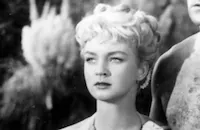
Venetia Stevenson
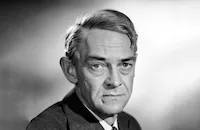
John Mcintire

Kenneth Tobey
Mary Field
Ken Lynch
Suzanne Lloyd
Ward Ramsey
Don Collier
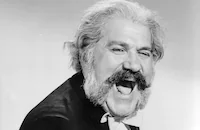
Jack Kruschen
Claudia Barrett
Teddy Rooney
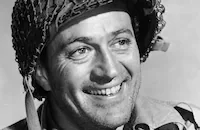
Don Haggerty

Robert Burton
Fred Graham
Dale Van Sickle
Joe Yrigoyen
Bob Herron
Charles Horvath
Jason Johnson
Judy Howard
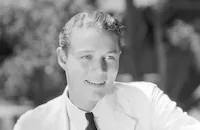
Bill Henry
Henry Rowland
Paul Sorensen
Gregg Martell
Maralou Gray
Bob Terhune
Dean Smith
Don Happy
Jim Sheppard
Guy Wilkerson
Paul Mcguire
Crew
Herbert Alberty
Joseph H. August Jr.
Michael Baumohl
Frank Brendel
Leslie I. Carey
Ellis Carter
Tom Case
Sherman Clark
Thomas J. Connors Jr.
Jacques Deerson
Larry Germain
Joseph Gershenson
Irving Gertz
Alexander Golitzen
Louis Hogue
Clair Huffaker
Gordon Kay
William Lava
Tony Martinelli
Tom Mccrory
George Milo
William Newberry
Connie Nichols
James Porter
William Reisbord
Vince Romaine
Bucky Rous
William Russell
George Rutter
Manny Spack
Ronald Talsky
Viola Thompson
Lloyd Ward
Waldon O. Watson
Bud Westmore

Film Details
Technical Specs

Articles
Kenneth Tobey (1917-2003)
Born in Oakland, California on March 23, 1917, Tobey originally intended to be a lawyer before a stint with the University of California Little Theater changed his mind. From there, he went straight to New York and spent nearly two years studying acting at the Neighborhood Playhouse, where his classmates included Gregory Peck, Eli Wallach and Tony Randall. Throughout the '40s, Tobey acted on Broadway and in stock before relocating to Hollywood. Once there, Tobey soon found himself playing a tough soldier in films like I Was a Male War Bride and Twelve O' Clock High (both 1949); or a tough police officer in Kiss Tomorrow Goodbye and Three Secrets (both 1950). Such roles were hardly surprising, given Tobey's craggy features, unsmiling countenance and rough voice.
Needless to say, no-nonsense, authority figures would be Tobey's calling for the remainder of his career; yet given the right role, he had the talent to make it memorable: the smart, likeable Captain Hendrey in The Thing From Another World (1951); the gallant Colonel Jack Evans in the "prehistoric dinosaur attacks an urban center" genre chiller The Beast from 20,000 Fathoms (1953, a must-see film for fans of special effects wizard, Ray Harryhausen; and as Bat Masterson, holding his own against Kirk Douglas and Burt Lancaster in Gunfight at the O.K. Corral (1957).
Television would also offer Tobey much work: he had his own action series as chopper pilot Chuck Martin in Whirlybirds (1957-59); and had a recurring role as Assistant District Attorney Alvin in Perry Mason (1957-66). He would also be kept busy with guest appearances in countless westerns (Gunsmoke, Bonanza, The Virginian) and cop shows (The Rockford Files, Barnaby Jones, Ironside) for the next two decades. Most amusingly, the tail end of Tobey's career saw some self-deprecating cameo spots in such contemporary shockers as The Howling (1981); Strange Invaders (1983) and his role reprisal of Captain Hendry in The Attack of the B-Movie Monsters (2002). Tobey is survived by a daughter, two stepchildren, and two grandchildren.
by Michael T. Toole

Kenneth Tobey (1917-2003)
Quotes
You know, you'd make a fair to middling bad man if you ever gave yourself half a chance.- Jim Flood
Trivia
Notes
Clair Huffaker's onscreen credit reads: "Screenplay by Clair Huffaker, based on his novel." As noted in a March 21, 1960 Hollywood Reporter news item, the novel was never published. Although George Sherman was originally hired to direct Seven Ways from Sundown, a May 13, 1960 Hollywood Reporter news item notes that he requested to be relieved of the assignment after the picture's start date was delayed. The Film Daily review incorrectly lists Gene Anderson as the film's director of photography. According to a May 2, 1960 Hollywood Reporter news item, some scenes were shot on location in Nevada near Las Vegas.














